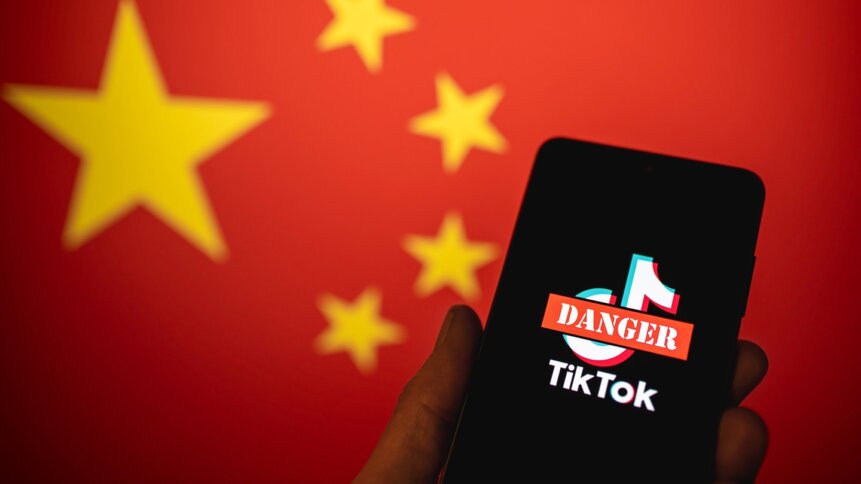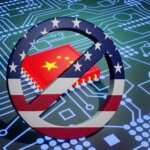UK bans TikTok on government phones

The UK has become the latest nation to ban the micro-video-sharing app TikTok on government-issue phones, allegedly on the grounds of “security.” It is following an arguably Sinophobic line established by the US, and then pursued by the European Commission, and the governments of Canada, Belgium, and India.
The idea behind the ban is that TikTok is the leading social media platform not headquartered in the West, but in China, and that the Chinese government has a rule that – should it choose to do so – it can demand any data held by companies headquartered in the country.
A credible threat?
Is that a credible threat?
It depends how we define “credible.” And “threat.” And also, on the circumstances prevailing at the time at which we ask.
Certainly, in theory, the Chinese government getting its hands on the user data of government ministers is potentially alarming, but it’s worth noting that the data TikTok collects to recommend more appropriate videos to users is very similar to the data collected by other, Western-based social media platforms – age, location, device and, perhaps most importantly, user activity elsewhere on the internet.
And while Western governments like to claim a significantly higher and more ethical threshold of intent, it remains true that, for instance, the US government can requisition data from social media platforms with headquarters in the country too, if it feels the need – as explained by the Brennan Center for Justice in 2022.
Currently though, there seems little reason for China to pressurize ByteDance, TikTok’s owner, into giving up user data. The prevailing circumstances seem in no way to justify such action. At least, not right now.
The supply chain squeeze.
It’s also the case that TikTok has been assuring everyone who will listen to it, upto and including figures from the US government, that it will never hand over user data to the Chinese government. The truth is that its reassurances are increasingly falling on deaf ears – though for reasons beyond the actual danger inherent in the idea that it will go back on its word.
As we’ve seen in other areas, particularly the semiconductor production and supply chain, the US is driving to shut Chinese hyper-development down while it tries to re-establish its own domestic dominance in the field. It has persuaded other major players in the supply chain to freeze out China, and has encouraged American-based companies that want some of its CHIPs Act cash so they can build plants in the US to progressively disentangle themselves from the previously attractive arms of Chinese manufacturing – and the low production costs available in an undemocratic superpower state.
The TikTok ban is in some ways an odd adjunct to this main policy thrust. On its surface level, it simply serves to stoke US patriotism – and relative nationalism – as senators and members of congress push for an absolute assurance that no US user data will ever reach the HQ of ByteDance in China, an assurance the company is unwilling (and potentially unable) to give. That way, TikTok, and China in the broader sense, can be painted as being intransigent, and so justify other moves against Chinese technological development.
But as with semiconductor supply chains, the US has found both countries and companies willing to go in the direction it has set.
A short recent history of UK government data-handling.
A skeptical observer would say that the UK government has not had a particularly stellar time as regards the data on its phones in recent years.
Photographs and texts showing former Prime Minister Boris Johnson partying in Downing Street at the time when he had personally explained the social distancing rules to the nation (and when, for instance, Queen Elizabeth had to mourn the death of her husband alone) became a wedge issue that precipitated a mass resignation, and ultimately forced him out of office.
Former Attorney General Suella Braverman resigned from the government of Johnson’s successor, Liz Truss, on the grounds that she had become a national security risk by sending classified documents from a government email account to her personal account. This was one of a cluster of issues that forced Truss out of office just 44 days after she attained the premiership.
Braverman was back in government the following month, the “national security risk” appointed Home Secretary (equivalent to the US Attorney General) by Truss’ successor, current Prime Minister, Rishi Sunak.
And in the last few weeks, Johnson’s Health Secretary, Matt Hancock, who was in direct charge of Britain’s response to the Covid-19 crisis throughout the pandemic, hit headlines again for voluntarily surrendering no fewer than 10,000 WhatsApp messages from his phone to a journalist. Ironically of course, WhatsApp is encrypted end-to-end, so the only way they could be leaked would be, for instance, if you voluntarily gave them to someone.
Hancock gave them to a journalist, Isabel Oakeshott, who was ghostwriting his memoir of his time in charge of the deadly crisis.
Oakeshott, citing the national interest defence, leaked all 10,000 WhatsApp messages to the right-leaning British newspaper, The Daily Telegraph.
While the precise culpability of Hancock and Johnson in the handling of the pandemic in the UK remains an issue for future scrutiny, one thing that has become initially clear is that major policy decisions during that time were made not in the traditional way of minuted official meetings, but relatively on the fly – and by WhatsApp.
The art of the perfectly possible.
It is of course perfectly possible that the UK government finds itself persuaded of the danger of TikTok data being funnelled back to the Chinese government by a company that has a) categorically said that it won’t do that, and b) recently proved itself among the most responsible of the social media platforms when it comes to dealing with misinformation about political hot potatoes from the illegal Russian invasion of Ukraine to the US midterm elections.
It just doesn’t fly particularly in sync with the UK government’s recent treatment of its own highly embarrassing and career-ending phone data.
Bottom line, the ban on UK government-issue phones has been described by Minister Oliver Dowden as “precautionary,” but will come into effect immediately.
An outlandish and speculative theory.
Beyond the idea that the US benefits by casting suspicion on popular Chinese platforms, there is one chilling but far-fetched possibility behind the swathe of governmental TikTok bans.
Assuming the as-yet-paranoia of Western governments is justified, and TikTok shuttles user data from government phones to Beijing, for the Chinese government to interrogate at will, a pre-emptive TikTok ban would be the sort of move made by countries or governments who had plans to take significantly overt action against a country, and were keen to close down even any potential channels by which that country could get advance intelligence of such moves. Such overt action would, naturally, radically change the prevailing circumstances, and with them, the validity of assurances that had been given under previous geopolitical circumstances.
There is of course probably nothing to this hypothesis. But the idea that Western governments might soon be sharing information that would make it worth China’s while to force the hand of ByteDance on user data remains an intriguing – if an outlandish – possibility.










